
Take the first professional
online IQ test.
The RIOT IQ test is a rigorously developed, professional online IQ test and testing platform for psychologists, researchers, clinicians, employers, institutions, and curious individuals.
- Meets educational and psychological testing standards from APA, AERA, & NCME
- Based on the Cattell-Horn-Carroll (CHC) model of intelligence
- Developed by intelligence researcher Dr. Russell T. Warne
- Reviewed by a diverse expert panel to ensure fairness
Tests and Pricing
Explore All RIOT IQ Tests
All versions of the RIOT IQ test are normed on US-born, native English speakers aged 18 and older. Below you'll find all our IQ tests, from our Sample free IQ test to our more robust, Full RIOT IQ test.
Full IQ Test
15 subtests + all cognitive abilities
The full RIOT IQ test with all subtests and the highest accuracy. You can take breaks and resume your test at any time.
Features
- ~52 Minutes
- IQ score
- Cognitive abilities breakdown
- ±3.7 IQ margin of error
15/15 Subtests
Learn moreFull IQ Test
15 subtests + all cognitive abilities
The full RIOT IQ test with all subtests and the highest accuracy. You can take breaks and resume your test at any time.
Features
- ~52 Minutes
- IQ score
- Cognitive abilities breakdown
- ±3.7 IQ margin of error
15/15 Subtests
Learn moreBasic IQ Test
5 subtests + 5 cognitive abilities
A partial version of the full RIOT designed for a quicker assessment. You can take breaks and resume your test at any time.
Features
- ~13 Minutes
- IQ score
- Cognitive abilities breakdown
- ±5.6 IQ margin of error
5/15 Subtests
Learn moreCustom IQ Test
Custom subtests
Choose individual RIOT subtests to target specific abilities.
Features
- Up to 52 Minutes
- T Score
- Cognitive abilities breakdown
- Up to ±3.7 IQ margin of error
Custom Subtests
Mix and match from all 15 subtests
About
What is the RIOT IQ Test?
The RIOT IQ test is built on over a century of IQ and intelligence research, adhering to psychometric standards and rigorous statistical norming procedures. We strive to be the best online IQ test in the world, and to serve as an alternative to gold standards such as the WAIS and Stanford Binet IQ tests.
Introducing the RIOT
The Reasoning and Intelligence Online Test (RIOT) is an IQ test for adults (18+). It features 15 subtests across six cognitive indices and is administered through a custom-built online platform. Designed for efficiency, the test can be completed in 60 minutes or less.
Introducing the RIOT
The Reasoning and Intelligence Online Test (RIOT) is an IQ test for adults (18+). It features 15 subtests across six cognitive indices and is administered through a custom-built online platform. Designed for efficiency, the test can be completed in 60 minutes or less.
History of IQ Testing
Francis Galton attempted to measure intelligence at the Anthropometric Laboratory in London.
Alfred Binet and Theodore Simon developed the first successful intelligence scale.
William Stern introduced the original IQ formula.
Lewis Terman published the Stanford-Binet Intelligence Scale.
The U.S. Army used the Army Alpha and Beta Tests during WWI for large-scale intelligence testing.
David Wechsler created the Wechsler-Bellevue Intelligence Scale, which later became the WAIS.
The first Wechsler Adult Intelligence Scale (WAIS) was published.
Researchers began investigating potential bias in IQ testing.
James Flynn identified the Flynn Effect, demonstrating increasing IQ scores over time.
Richard J. Haier pioneered research on intelligence, linking IQ to brain function.
The Cattell-Horn-Carroll (CHC) Theory became a leading model of cognitive abilities.
The International Society for Intelligence Research (ISIR) was founded.
The WAIS-IV, an updated version of the Wechsler Adult Intelligence Scale, was released.
RIOT Launch - Built on over a century of IQ research, the RIOT test combines modern computerized testing with scientifically validated intelligence assessment.
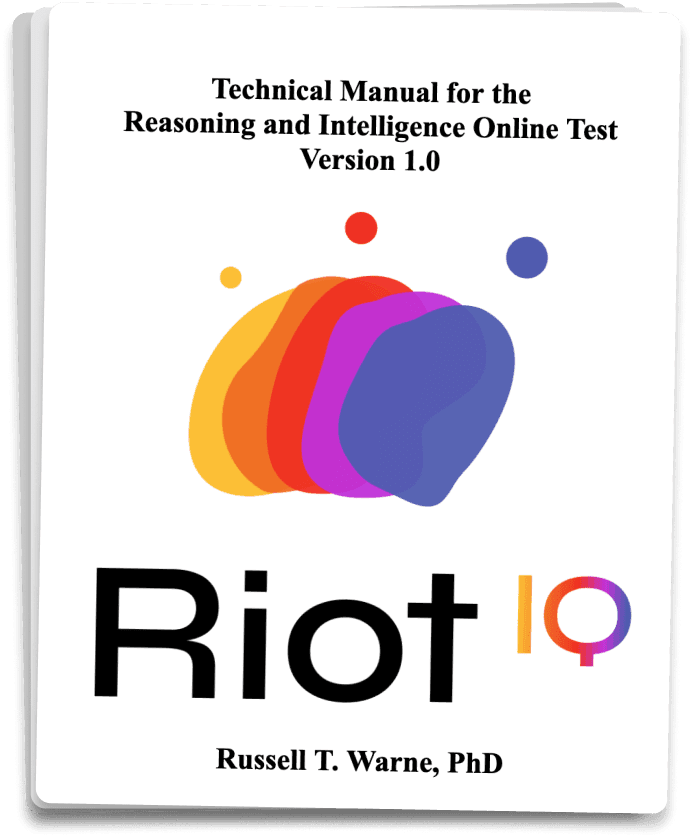
Find full details about the RIOT IQ test's development and methodology
Team
Developed by Experts
Meet Dr. Russell T. Warne - Chief Scientist and IQ researcher behind the RIOT IQ test.
About Dr. Russell T. Warne
Dr. Russell T. Warne is a distinguished educational psychology scholar specializing in research, measurement, and statistics. He earned his Ph.D. from Texas A&M University and spent over a decade as a faculty member at Utah Valley University.Dr. Warne's research on human intelligence and giftedness is widely recognized. He has published numerous articles in esteemed journals such as Psychological Bulletin and Intelligence. He is also the author of In the Know: Debunking 35 Myths About Human Intelligence, published by Cambridge University Press in 2020.As a member of the International Society for Intelligence Research and the editorial board of Intelligence and Cognitive Abilities, Dr. Warne actively contributes to advancing the field. He has received awards from prestigious organizations, including the MENSA Foundation and the National Association for Gifted Children.With his expertise and dedication to scholarship, Dr. Warne continues to shape the discourse and understanding of intelligence research, making significant contributions to the field.
Russell's articles & journals
Russell's books
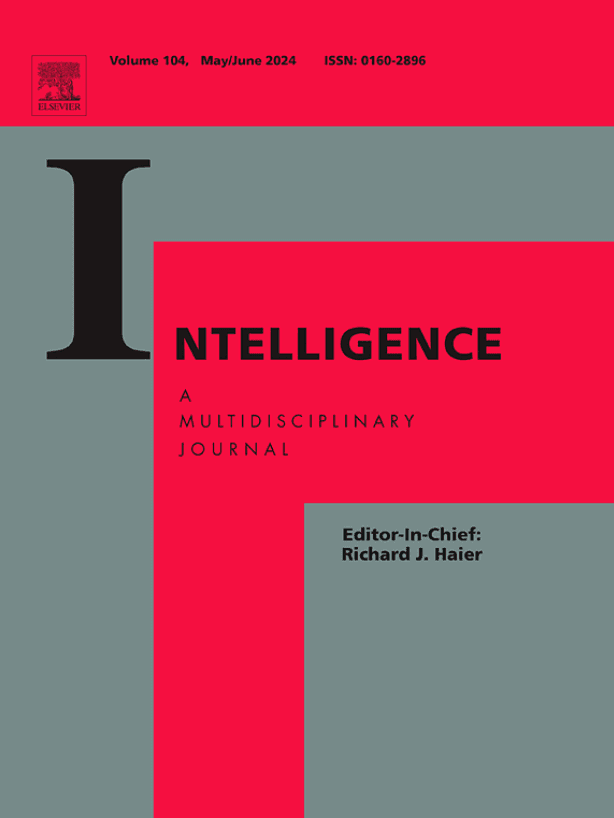
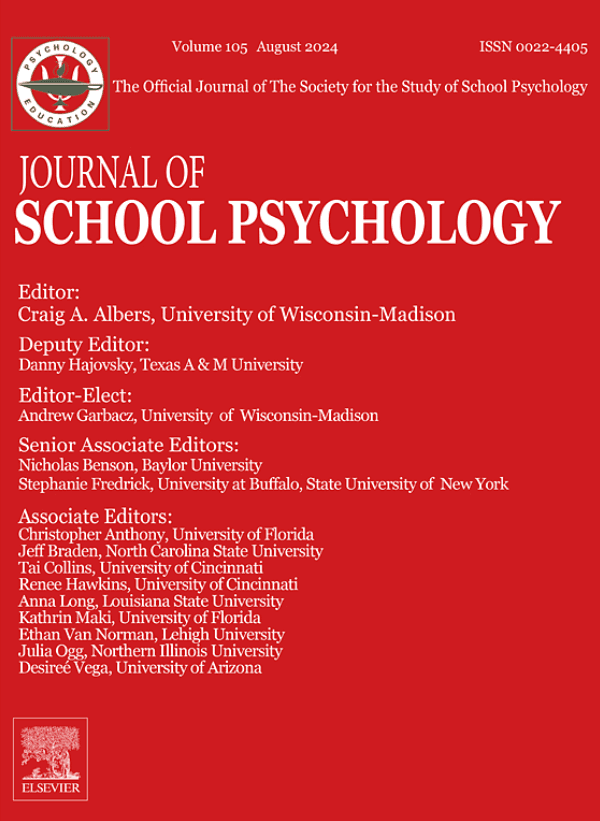
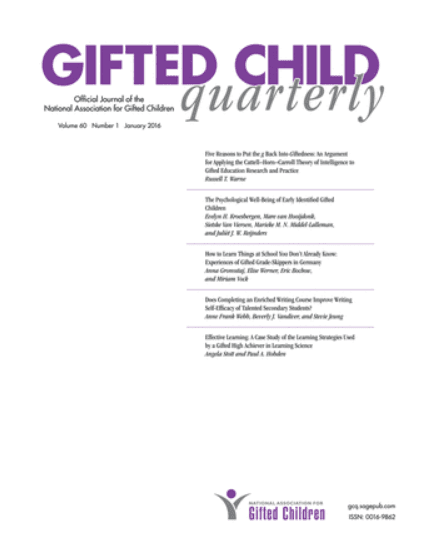
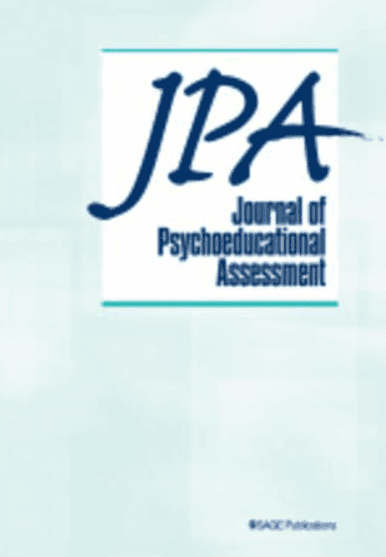
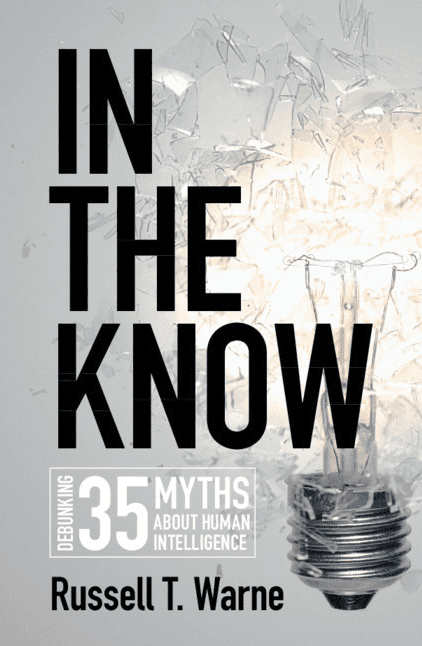
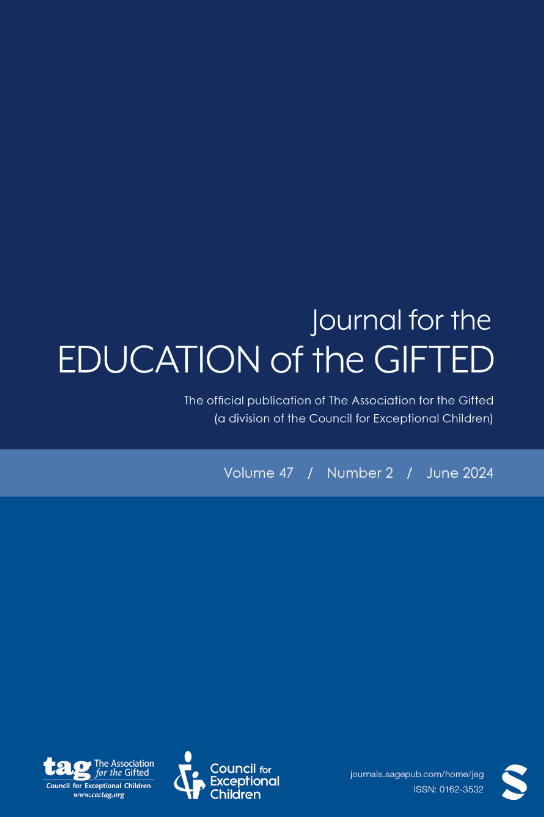
Sensitivity Panel
Reviewed by a Diverse Expert Panel to Ensure Fairness
At RIOT, we believe IQ testing should be fair, inclusive, and free from bias.
Every question in the RIOT IQ Test undergoes a rigorous sensitivity review by an independent panel of experts, including cognitive, educational, and school psychologists. These specialists carefully examine each item to identify and remove potentially biased, distracting, or inappropriate content.
If a concern is flagged, the item is either revised or removed to maintain fairness and accuracy. This comprehensive review process reinforces our commitment to delivering an equitable, scientifically valid assessment for all test-takers.
Sensitivity Panel Participants

Dr. Craig L. Frisby
“The RIOT test is a new comprehensive multi-subtest intelligence battery that includes innovative item types, some of which are not found in a wide variety of contemporary general mental ability tests. The RIOT battery includes a wide variety of both verbal and nonverbal content that test users would undoubtedly find interesting, fun, challenging, and imaginative.”

Dr. Maria Lazo
“The testing of this instrument was rigorous and included a transparent development process that points to the expertise involved in all stages. The thoughtfully constructed test items reflect careful attention to detail, making this a robust tool for measuring intelligence with precision and fairness.”

Joyce Juntune
“The Reasoning and Intelligence Online Test (RIOT) is built on a solid understanding of intelligence. By integrating diverse verbal and nonverbal tasks, it accurately assesses an individual's reasoning, problem-solving, abstract thinking, and advanced cognitive abilities. Its online accessibility makes it a valuable tool for professionals who require this information for informed decision-making.”
Dr. Dante Dixson
Dr. Jessica C. Hill
Dr. Jonathan Wai
Dr. Frank C. Worrell
More Than an IQ Test
What's Included with Each IQ Test
Your analysis depends on your chosen RIOT IQ test version, but our full IQ test includes all of the features below.
Compare to Others
IQ score & comparisons
After completing the RIOT test, examinees receive an IQ score (with a margin of error) and an interpretation that compares their results to those of other RIOT test-takers and a representative sample of examinees.
Learn more about how IQ is measured in our Chief Scientist's article: How to Calculate IQ.
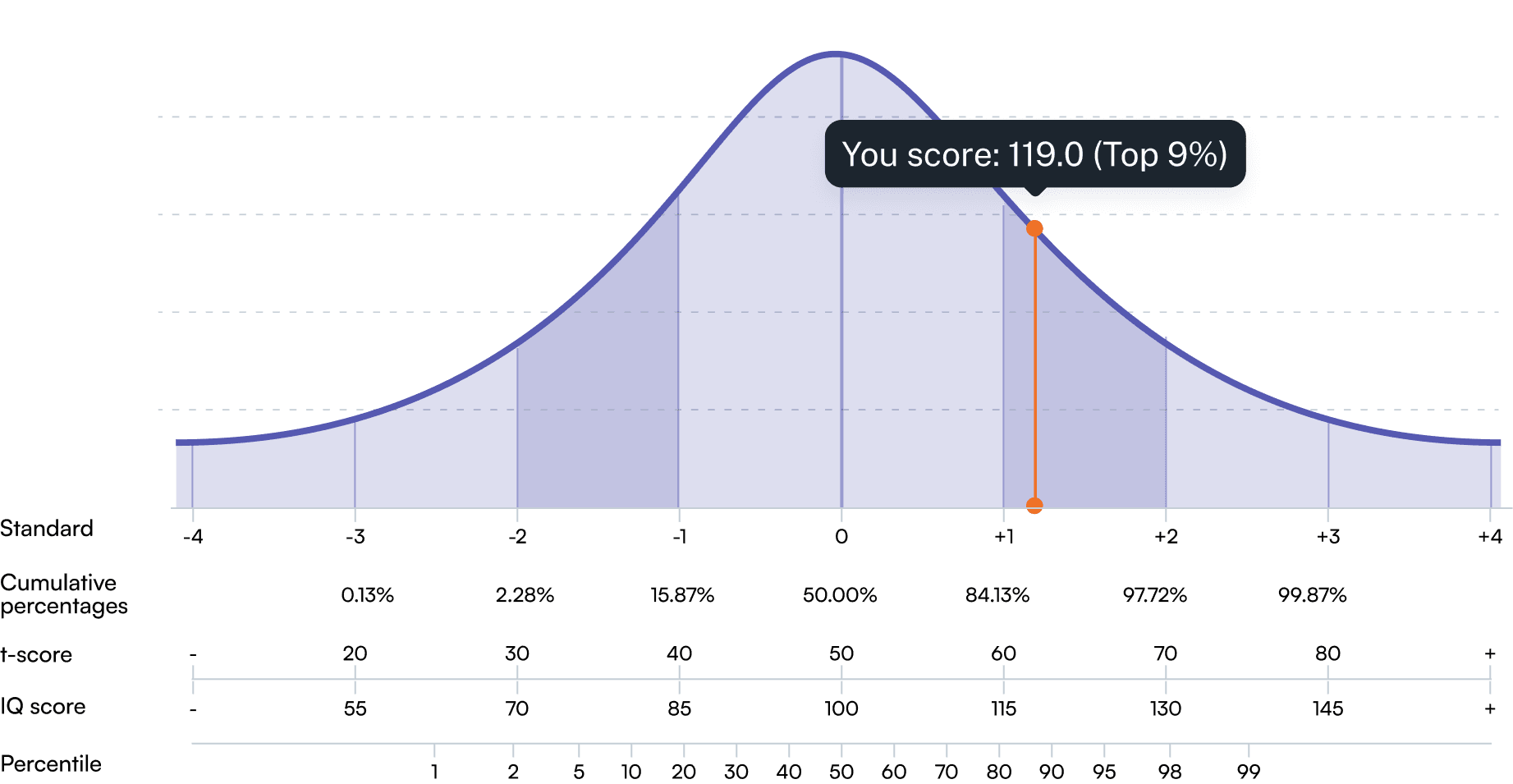
Cognitive Abilities
Breakdown of 6 Cognitive Abilities
Your results will include a breakdown of your 6 cognitive abilities. These abilities are also referring to as "indexes" or "factors" in the scientific world. The abilities include: Verbal Reasoning, Fluid Reasoning, Spatial Ability, Working Memory, Processing Speed, and Reaction Time. Learn more about the 6 cognitive abilities here.
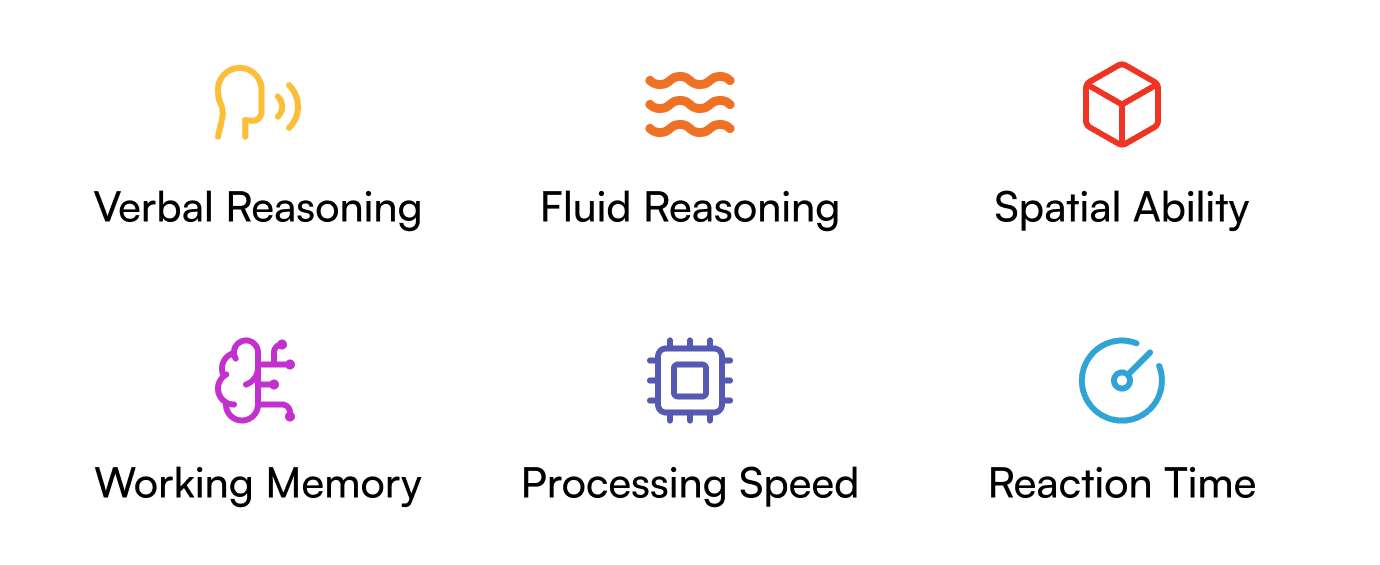
Subtests
15 subtests, 16 T-scores
Along with an IQ score, you will be able to more granularly analyze your T-scores for each of the 15 subtests. In psychometrics, each subtest score is referred to as a "T-Score". Some subtests have more than 1 score. Reaction Time has 2 T-scores: Choice Reaction Time & Simple Reaction Time, hence 16 T-scores. Learn more about the 15 subtests here.
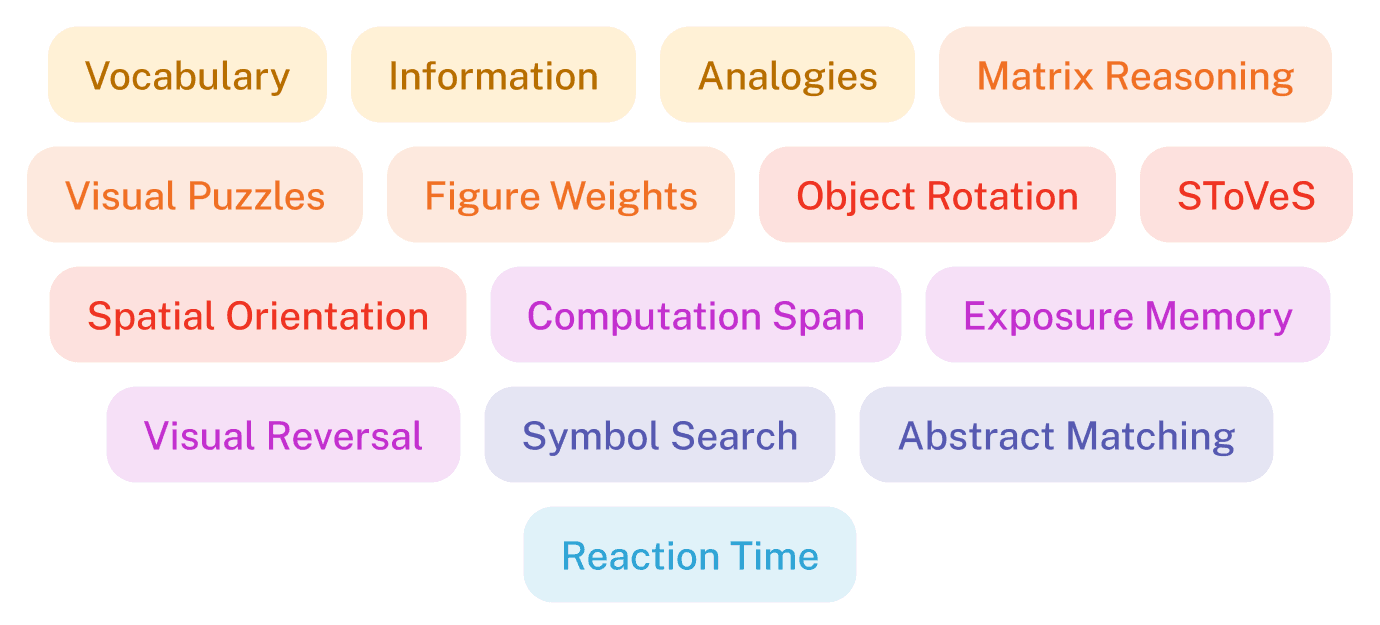
FAQ
Still have questions?
Learn more about intelligence research and testing.
Community
Intelligence Journals & Organizations
News & Press
Our Articles
Our Articles
Our Articles
Our Articles
Our Articles


